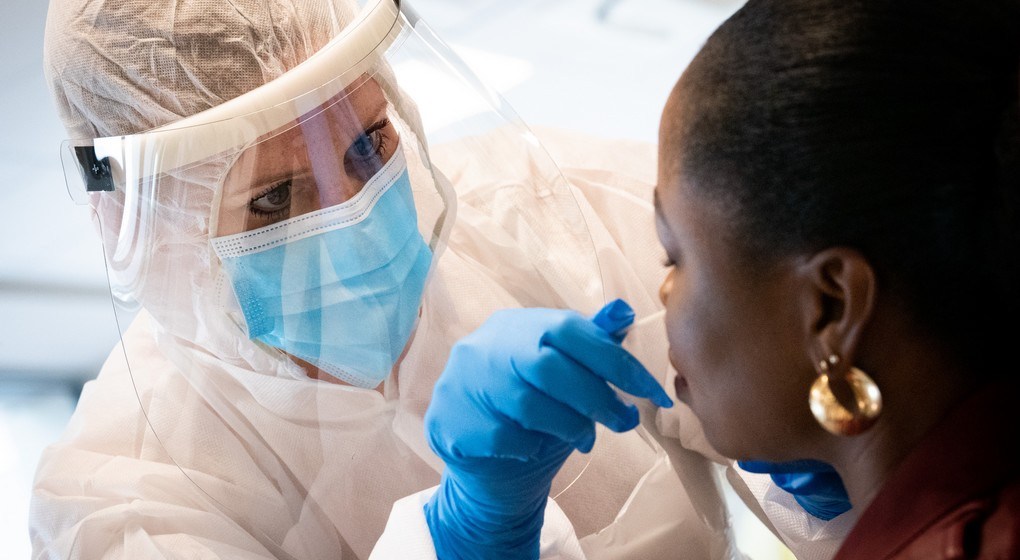Doctors have warned they will not follow the government's adapted testing strategy which would see vaccinated people who were in close contact with a person infected with the coronavirus being tested just once.
On Saturday, the various health ministers decided that vaccinated people will only have to undergo a test on day one after they have been notified that they were in contact with an infected person, and no longer on day seven, an announcement that has been criticised by general practitioners.
"This new testing strategy is not feasible, increases the virus circulation and the pressure on GPs. Therefore, we have decided that we are not going to follow this new strategy," Roel Van Giel of general practitioner's association Domus Medica told VRT News.
As part of the new system, both vaccinated and unvaccinated people have to stay in quarantine until they get a negative result. Vaccinated people can leave quarantine without a second test, however, those who have not been vaccinated still have to be tested on day one and day seven.
Related News
- Almost 3,500 Covid-19 patients in hospitals as new cases continue to skyrocket
- Majority of booster doses should be administered by March 2022
- Pharmaceutical companies looking into vaccines against new variant
Domus Medica, which has said it will "no longer follow the decisions of the Consultative Committee and the Interministerial Conferences," opposes this strategy for three reasons, according to Van Giel.
"Firstly, it is not feasible, because there are hardly any high-risk contacts who receive a code to be tested after just one day. Moreover, there is often a waiting time of several days in testing centres."
The GPs are also questioning this strategy from an epidemiological viewpoint, as a person can become infected several days following a high-risk contact, which is what doctors are often noticing after a second test. By not undergoing the second test, GPs fear that the virus will circulate more.
Van Giel added that thirdly, the new strategy does not at all relieve doctors of the heavy workload they already have, and instead puts more pressure on them, "because testing patients on day one is not at all feasible."
This was also the case following another tool implemented by the government which aimed to relieve the pressure on GPs by allowing people showing Covid-19 symptoms to find out if they need to be tested or not online, which contrary to the aim, further increased their workloads.
Own strategy
Domus Medica had asked the government for a thorough adjustment of the testing strategy, as doctors are overrun under the current system, and the number of tests being taken is dramatically increasing.
"But as we had feared, that thorough adjustment of the testing strategy did not happen," Van Giel said, adding that the organisation instead will recommend its own strategy.
"We proposed to put everyone who has had a high-risk contact in quarantine for five days, and in that interim period to give them time to receive a test code and a quarantine certificate and to have a test taken. We are now going to advise this to GPs as well."
Flemish health minister Wouter Beke defended this decision, explaining that putting people in quarantine without being tested has a lot of consequences.
"Not only economic consequences, but also for the people in childcare, health care and vaccination centres. If you quarantine all of those, I fear we will have incredible problems," he said on VRT's Journaal news programme.
He added that, even if people have been vaccinated and received a first negative test result, they should remain cautious and limit their contacts.

